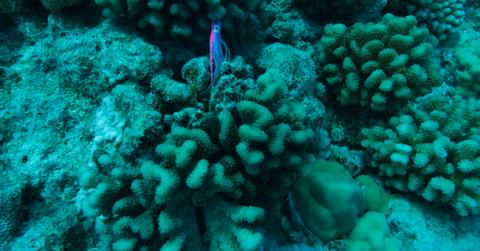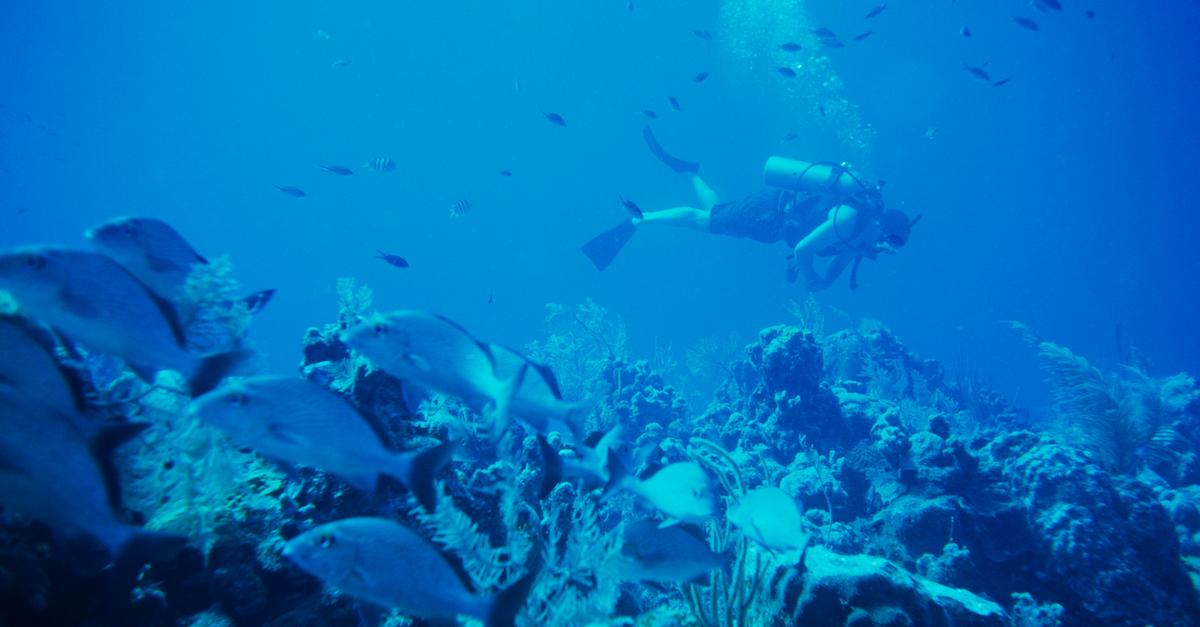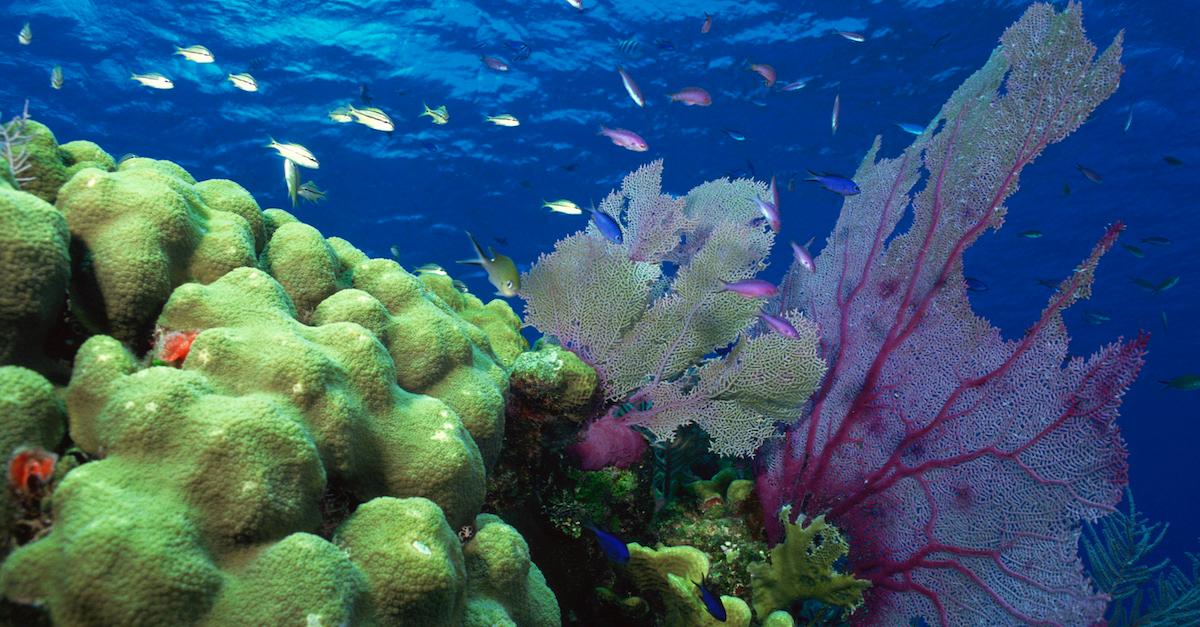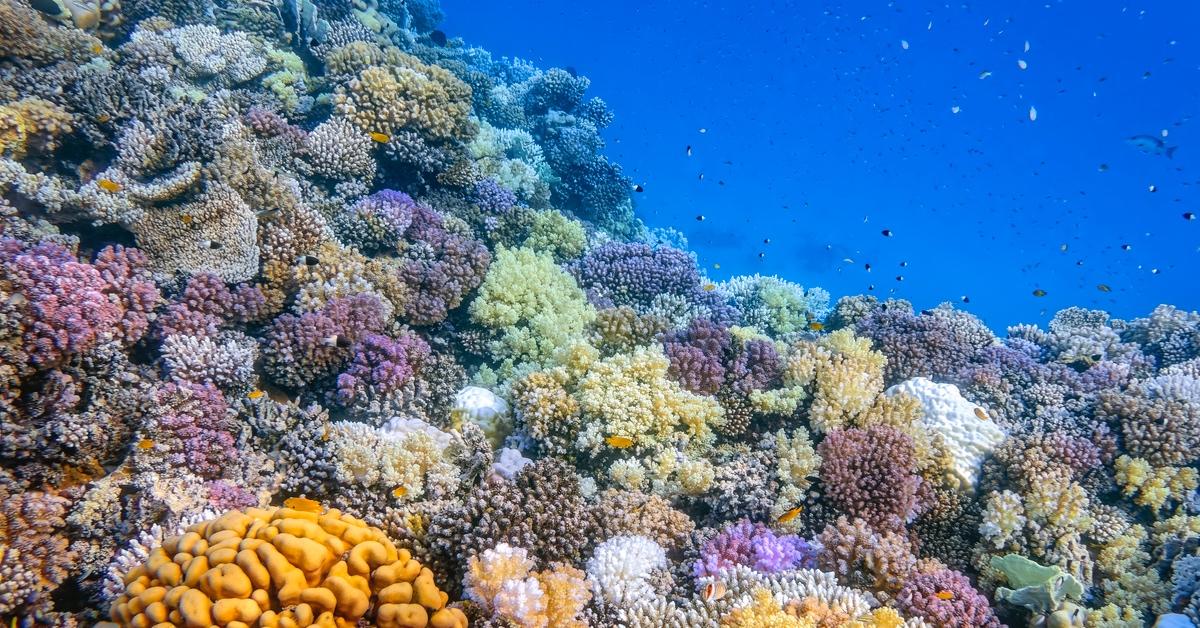73% of All Coral Reefs Have Reached Temperatures to Begin Bleaching
"As the world’s oceans continue to warm, coral bleaching is becoming more frequent and severe."
Updated July 31 2024, 10:58 a.m. ET

There are so many devastating variables that could lead to our ocean's demise — overfishing, greenhouse gases, and invasive species are just a few. But one thing that's really taking a toll on marine life is coral bleaching.
If you've never heard of coral bleaching, perhaps you've seen harrowing photos and videos of the Great Barrier Reef, completely void of color in sections. But what is coral bleaching, why is it so detrimental, and what's causing this phenomenon? Keep reading for everything you should know about coral bleaching, explained.

What is coral bleaching?
Coral bleaching takes place when changes in living conditions occur, such as changes in water temperature, overexposure to sunlight, or low tides, according to the National Oceanic and Atmospheric Administration (NOAA). Coral expels the algae living in its tissues, called zooxanthellae, and "bleaches" or becomes white.
This takes a toll because coral reefs make up entire undersea ecosystems, providing a habitat and even food source for fish, mammals, and plants alike. Without the coral, these animals die off, too.
While coral bleaching does not technically kill the coral, they do become at risk for starvation and disease, as per the Great Barrier Reef Foundation.
Coral living conditions returning to normal does allow for the coral to slowly recover from bleaching, but with rapidly warming global temperatures, the ability for coral to recover from bleaching is looking less and less likely.
Certain organizations such as the Coral Restoration Foundation and the Great Barrier Reef Foundation have reef restoration projects underway using cutting-edge technology like cryopreservation. However, it's unclear whether these restoration efforts will be enough in the face of climate change.

In 2024, the National Oceanic and Atmospheric Administration alerted citizens of a mass coral bleaching event.
Although mass coral bleaching events have been occurring for years, in April 2024, a report from NOAA describes a fourth global coral bleaching event taking place in every single major ocean basin.
Derek Manzello, a coral reef ecologist who coordinates NOAA’s Coral Reef Watch Program, said in a press release, "As the world’s oceans continue to warm, coral bleaching is becoming more frequent and severe." He added, "When these events are sufficiently severe or prolonged, they can cause coral mortality, which hurts the people who depend on the coral reefs for their livelihoods."
According to the Global Coral Reef Monitoring Network in a 2020 report, coral reefs are also essential to human life, and provide an estimated $2.7 trillion economic value. They also support at least 25 percent of all marine species.
The last global coral bleaching event started in 2014 and lasted until 2017, per NBC News. During that time, more than 56 percent of all reefs experienced temperatures that could cause bleaching.

U.S. organization Coral Reef Watch warns that record global heat has put over half of coral reefs at risk of bleaching.
According to The Guardian on July 31, 2024, Coral Reef Watch shares that a whopping 73 percent of the planet's coral reefs have become hot enough to begin mass bleaching. Since February 2023, the globe has been admit a fourth mass coral bleaching event, the second in ten years.
In light of this data, coral scientists are urging for reformed ideas about how to protect coral from further damage. Prof Tracy Ainsworth, the vice-president of the International Coral Reef Society told the outlet, "Now we are at a point where we hoped we would not be. Now we’re asking, what do we do now?"
It's more important than ever to take action and do your part to encourage global action to address the climate crisis. You can even start small by organizing beach cleanups or reducing your carbon footprint.
This article, originally published on Dec. 12, 2021, has been updated.